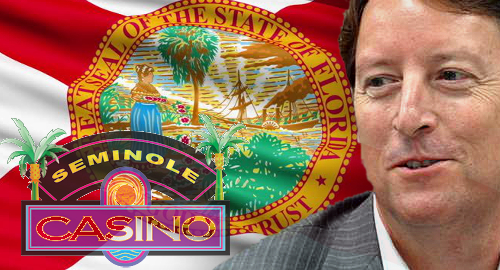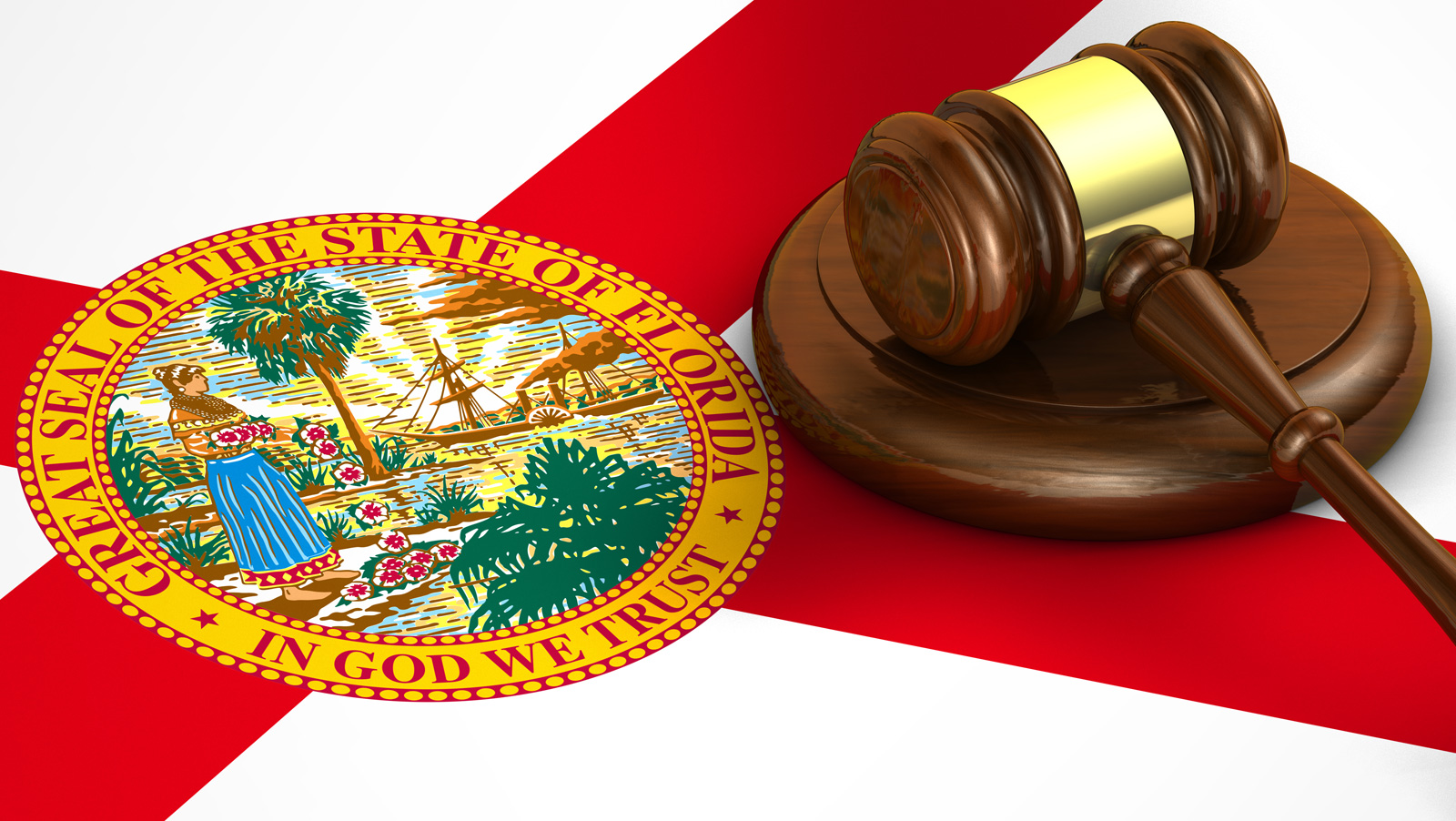 Florida’s first gambling legislation runner is officially out of the blocks in 2017 following Thursday’s filing of a 112-page tome covering everything from gas pump lottery sales to daily fantasy sports.
Florida’s first gambling legislation runner is officially out of the blocks in 2017 following Thursday’s filing of a 112-page tome covering everything from gas pump lottery sales to daily fantasy sports.
On Thursday, state Sen. Bill Galvano (pictured) unveiled SB 8 (full text here, summary here), the state’s latest effort to end the squabbling among its gaming stakeholders, resolve the standoff with the Seminole Tribe and arrive at some concrete legal position regarding DFS.
Past history has amply demonstrated that Florida has a tendency to set ambitious legislative agendas and then do little to bring those pigs to market. So we’re not going to get too deep into the weeds on SB 8 today but we will touch on the high points.
First off, SB 8 would approve the $3b gaming compact Gov. Rick Scott reached with the Seminoles in December 2015 but which the legislature never got around to ratifying. The matter took on new urgency last November after a federal court ruled that the state had violated the terms of its previous compact by allowing pari-mutuel operators to offer so-called designated-player card games.
But Galvano’s ratification promise comes with strings, including requiring the tribe to drop all pending legal actions, and accept some “revised exceptions from exclusivity” on slot machines and house-banked card games. In exchange, SB 8 would allow the Seminoles to offer dice and wheel games, while expanding blackjack to all six of the tribe’s Florida casinos.
SB 8 would allow pari-mutuels to offer blackjack provided they capped the number of tables at 25 per track. The bill also caps initial two-card wagers at $100 and imposes a 25% tax on blackjack operators’ monthly gross revenue.
SB 8 would also allow more pari-mutuel operators to host slot machines, provided they’re in counties in which voters have approved the idea via referendum. The bill also allows for one more new slots license in each of Broward and Miami-Dade counties.
SB 8 would permit decoupling, i.e. the process of allowing horse and greyhound racing operators, along with jai alai businesses, to end the façade that anybody gives a damn about their stated reason for being and just let them offer slots and card games. Expect much pushback from horse and dog breeders.
SB 8 would cut the slots tax from 35% to 25%, allow slots operators to offer players complimentary shots of Jägermeister and provide on-site access to ATMs. Slots and cardrooms could also keep the action going 24-7 (up from 18 hours per day for slots and eight hours per day for cardrooms on weekdays).
As for DFS, SB 8 revives earlier plans to create an Office of Amusements within the Department of Business and Professional Regulation that would oversee DFS activity. DFS licensees would pay initial fees of $500k and annual renewals of $100k, with lower fees promised for smaller operators not named DraftKings or FanDuel.
SB 8 calls for the introduction of “point of sale” lottery terminals, which includes ‘pay at the pump’ gas station sales. But the terminals can’t feature “mechanical reels or video depictions of slot machine or casino games themes or titles.”
While all of this sounds like a whole lotta gambling expansion, Galvano balanced this out by including a “pari-mutuel reduction program” under which the state would purchase and cancel active pari-mutuel permits for operators who’ve had enough of this racket. The state has set an initial budget of $20m to fund this program, which is only valid until July 1, 2019.
